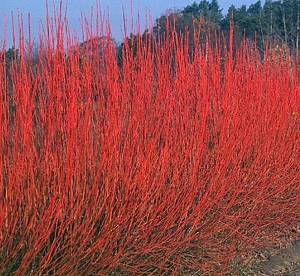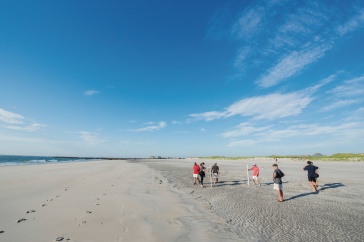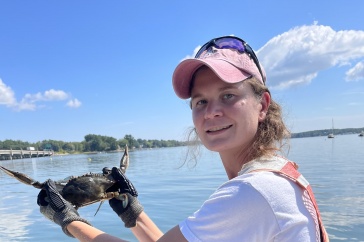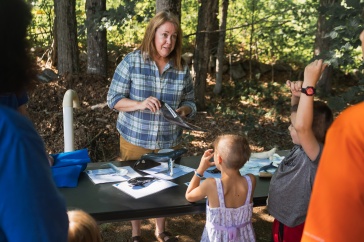
"I’m looking ahead to sprucing up my yard in the spring. Any suggestions for plants that are easy to take care of and particularly well-suited for New Hampshire?" – Hannah S., Keene
This week, UNH Cooperative Extension Master Gardener David White shares information about one of the best ways to create an easy and sustainable landscape that also benefits your surrounding ecosystem.
What are native plants?
If you’re looking to reduce yard maintenance or create a natural habitat for local wildlife, look no further than native plants. Some define native plants as plants that grew in New Hampshire before the arrival of European settlers. However, a true native plant is one that has evolved with its surrounding ecosystem and is uniquely suited to live in harmony with native insects, animals, microbes, and soil.
It has taken more than 10,000 years since the end of the last ice age for our native plant communities to develop. Native plants are as much a part of what makes New Hampshire unique as our mountains, lakes, rivers, and coastline.
UNH Cooperative Extension brings information and education into the communities of the Granite State to help make New Hampshire’s individuals, businesses, and communities more successful and its natural resources healthy and productive. For over 100 years, their specialists have been tailoring contemporary, practical education to regional needs, helping create a well-informed citizenry while strengthening key economic sectors.
Why landscape with natives?
There are many advantages to growing native plants in your yard. Since they’re adapted to the natural ecosystem, they’re better able to withstand climate changes and invasions from insects and diseases and require little care once established in your yard.
Native plants are also non-invasive, which means they pose no threat to other native plant communities. They have evolved a delicate balance with other plants, pests, and diseases so they don’t overwhelm an ecosystem, but remain an essential part of it. Also, since they’re so well adapted to our region, they provide reliable food and shelter to local wildlife, such as birds, mammals, and bees.
How to choose native plants for your yard
Take time to determine the characteristics of your property and be mindful that each of New Hampshire’s native plants has specific habitat requirements. For example, some native plants live near the coast, others only in the more northern parts of the state. Some native plants like to grow in full sun, others grow only in shade. Some native plants like their soil dry, some like it wet, while others tolerate a wide range of soil moisture.
For soil information, including soil drainage class, consult your County Soil Survey, your local Conservation District, or the UNH Cooperative Extension Education Center. UNH Cooperative Extension also provides soil testing services.
Examples of native plants
You can find native plants that are well adapted to virtually all combinations of soil moisture, shade and other site conditions. The following links provide information on the native plants in New Hampshire.
New Hampshire’s Native Trees, Shrubs, and Vines with Wildlife Value (UNH Cooperative Extension)
New Hampshire recommended native plants (Lady Bird Johnson Wildflower Center)
Native Plant List for New Hampshire (Plant Native)
Where do I get native plants?
Many nurseries and Conservation Districts sell native plants. If possible, purchase plants that have been grown locally, as they will probably do best in our climate.
Some species of native plants can be successfully transplanted from other locations. Make sure that you have landowner permission before collecting native plants and do not attempt to transplant rare plants. If you aren't sure whether a wild plant is rare or will survive transplanting, ask someone who is knowledgeable for advice or contact UNH Cooperative Extension Education Center.
For more information, visit the following online resources:
Natural Communities and Protected Plants (UNH Cooperative Extension)
Use Native Plants for Landscaping and Conservation Projects (UNH Cooperative Extension)
Going Native in the Garden (The Heart of New England)
New Hampshire Native Plants (Find Native Plants)
UNH Cooperative Extension’s Education Center answers questions about gardening and more at answers@unh.edu or by calling 877-398-4769 Monday through Friday, 9 a.m. to 2 p.m.


















































